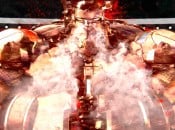
Brazil Chamber of Deputies withdraws retroactive tax plans
Industry expert Elvis Lourenço believes the retroactive tax topic will be revisited by the government, although he says the timing is not clear.
Brazil’s Chamber of Deputies on Wednesday withdrew a bill (PM 1,303) calling for operators to be subjected to retrospective taxes for up to 10 years prior to regulation.
The measure was included this week in an amended version of PM 1,303, which sought to address a number of economic policies in Brazil.
The retroactive tax would have replaced initial plans for a permanent increase in gambling tax from 12% to 18% of GGR.
This tax rise was introduced in June as a provisional measure. But operators will return to paying the original 12% now the measure has been scrapped.
The bill was approved by a congressional joint committee on Tuesday, with members voting in favour, 13-12.
But as it hit its final stage on Wednesday, PM 1,303 failed to gain the required support to pass through Congress.
The Chamber of Deputies withdrew the bill due to it not having the necessary support to pass. Members voted 251-193 in favour of the bill’s withdrawal.
Senator Rehan Calheiros, the chair of the joint committee that analysed PM 1,303 on Tuesday, said the bill’s failure to pass could have huge ramifications for Brazil.
In its amended form, the bill which included other economic measures was expected to generate BRL17 billion ($3.2 billion) in additional revenue over 2026.
“This is very bad. It ends up affecting public finances. I think it’s regrettable,” Calheiros said.
What does this mean for betting operators in Brazil?
The retroactive tax scheme, dubbed RERCT Litígio Zero Bets, was introduced within the bill as a voluntary programme, requesting operators pay a 15% tax on gambling operations carried out between 2014 and 2024, prior to regulation on 1 January this year.
Operators joining the programme would also pay a 15% fine, leading to an effective total tax charge of 30%.
Udo Seckelmann, head of gambling & crypto at Brazilian law firm Bichara e Motta Advogados, told iGB this week the programme could have offered legal certainty for licensed betting operators in Brazil, helping them to avoid tax disputes in the future.
What happens now?
The expiry of PM 1,303 means retrospective taxes will not happen in the short term, but it is likely they will be revisited in the not-so-distant future.
The government had expected to raise approximately BRL5 billion specifically from the retrospective tax programme.
Notably, this would have been equivalent to three years of increased gambling tax revenue.
With such a significant revenue stream on the table for the government, stakeholders expect the government will review similar opportunities again.
The matter has been one of the key focuses of the GTI-Bets, a working group created in January between the Secretariat of Prizes and Bets and the Federal Revenue Service (RFB) which aims to ensure the licensed sector is meeting its tax requirements.
Robinson Barreirinhas, special secretary of the RFB, told the parliamentary inquiry commission on betting in March that the government should seek to recover taxes that went unpaid in the grey market.
Brazilian iGaming expert Elvis Lourenço believes retroactive tax will be revisited.
“Politically, the [failure of PM 1,303] signals limited congressional appetite for a fast-track fiscal package tying betting taxation to broader revenue measures,” he tells iGB.
“Expect the government to reframe or refile elements in a new bill/MP, but timing is uncertain.”











